10 wet room ideas to inspire a practical and stylish shower space
Wet rooms offer so much potential for playing with colour and pattern - try out these ideas to revamp your shower space

Holly Cockburn
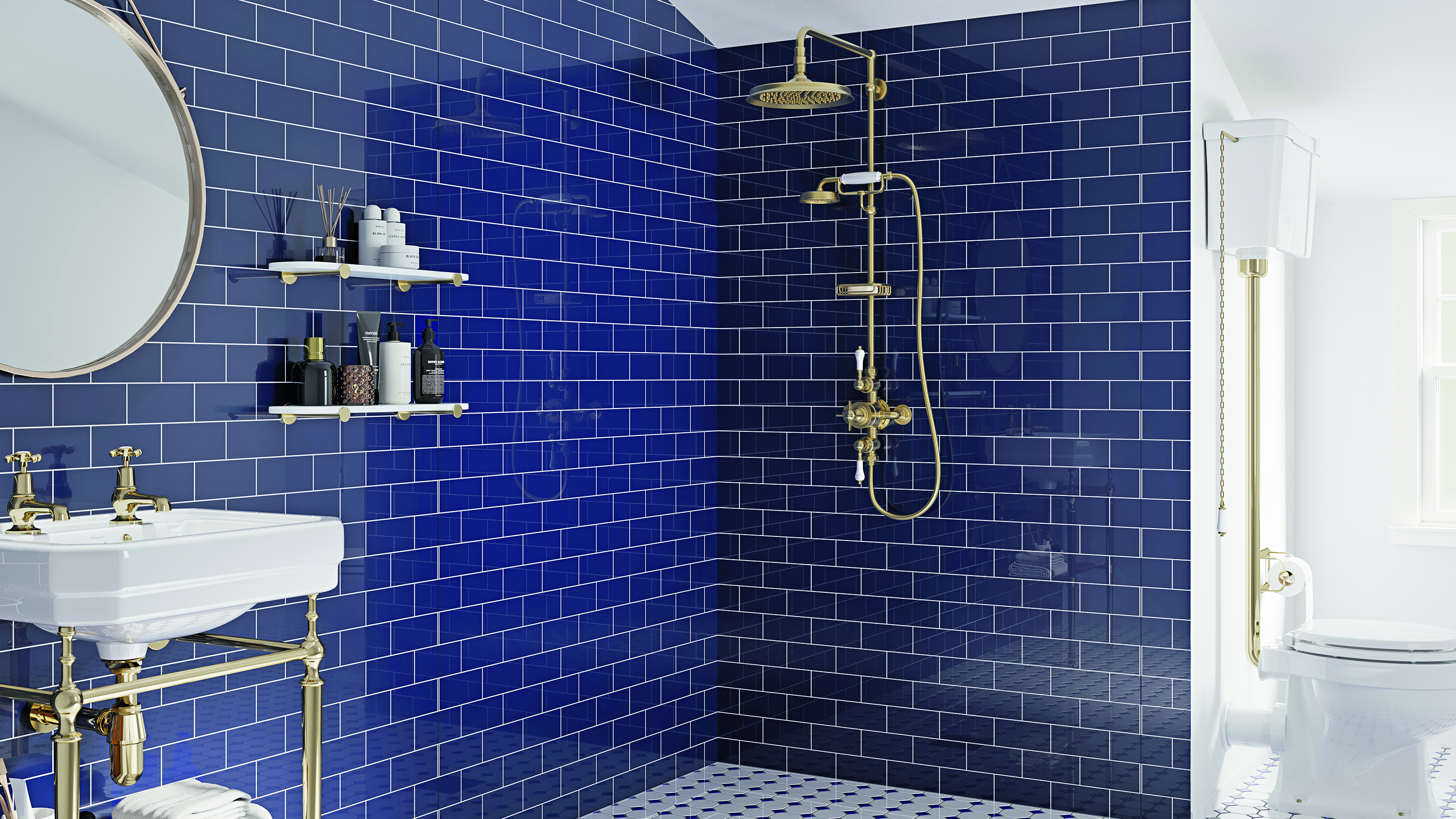
Wet room ideas are a super functional design choice for a bathroom. They've been having something of a moment for a while now and it's clear why - they're perfect for rooms of all shapes and sizes and they make planning simple. While typical walk in shower ideas aren't going anywhere, a wet room might be the right choice for you.
'Wet rooms provide a luxurious and contemporary aesthetic to the home, and the added waterproofing can add value your property,' says Jorge Hernandez, product & design manager at Crosswater.
'One of the biggest advantages of a wet room is accessibility, allowing those with mobility issues to use the space easily without the difficulty of stepping over the edge of a traditional shower or bathtub,' Jorge adds.
So if you're thinking of choosing a wet room for your next bathroom renovation, consider these style and functionality tips before you start planning.
Wet room ideas
Before we get started showcasing our favourite wet room ideas, it's helpful to classify exactly what we mean when using this bathroom term.
'A wet room is a bathroom setting in which the shower is open, or alternatively set behind a single wall,' explains Lidia Cetrangolo, marketing manager at Multipanel. 'The floor area of a wet room is flush with the floor covering the room, with an outlet set into the floor for the water to drain.'
1. Choose a simple tile
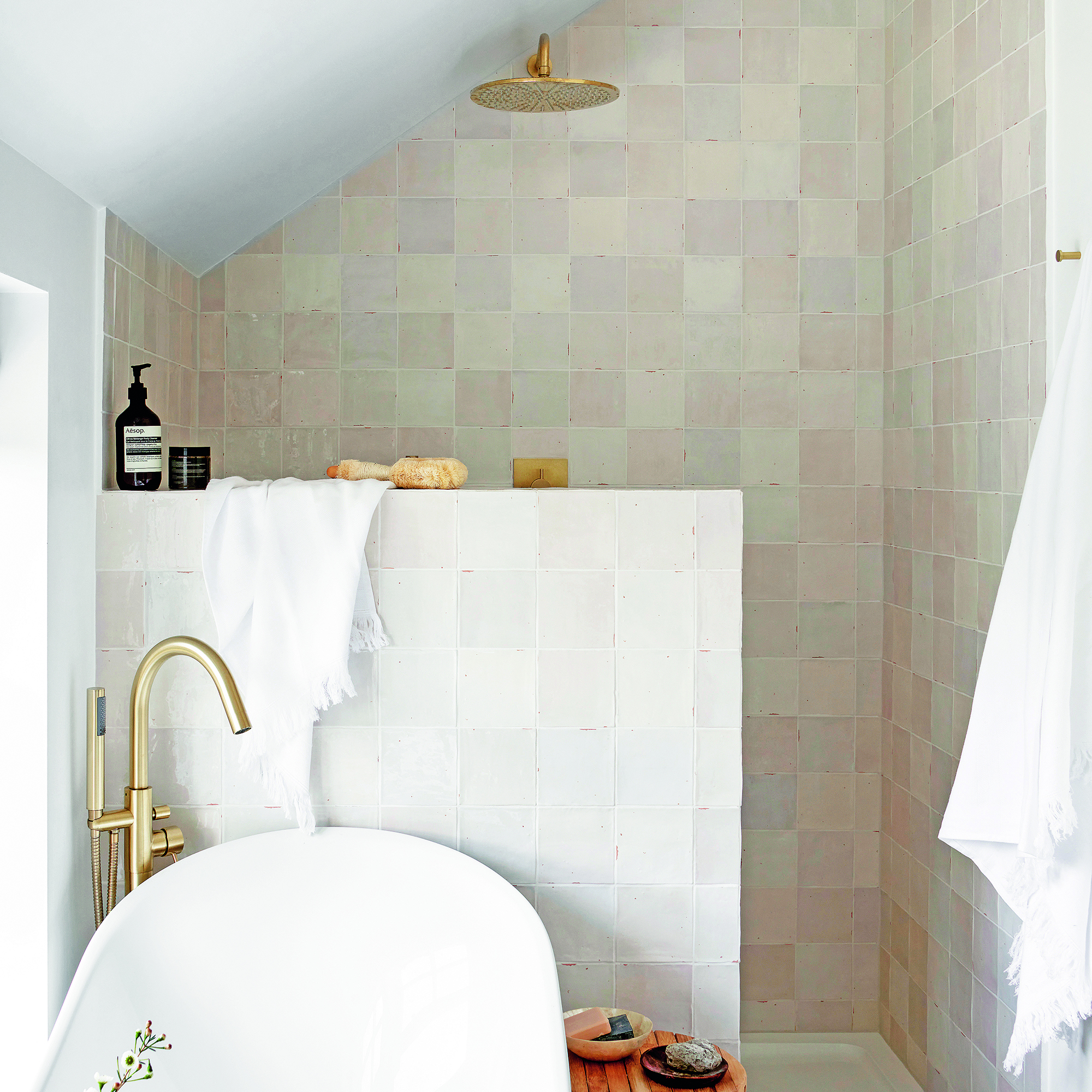
A wet room is the prime opportunity to make use of the very best bathroom tile ideas, and while there are so many exciting patterns out there, we love keeping it simple.
Sign up to our newsletter for style inspiration, real homes, project and garden advice and shopping know-how
A neutral tile will make a wet room look bright and inviting which is perfect for invigorating morning showers. Opting for a tile with natural texture, like a zellige tile, will help to add dimension to the space and will aid grip so that it's not too slippy.
2. Squeeze into a small space
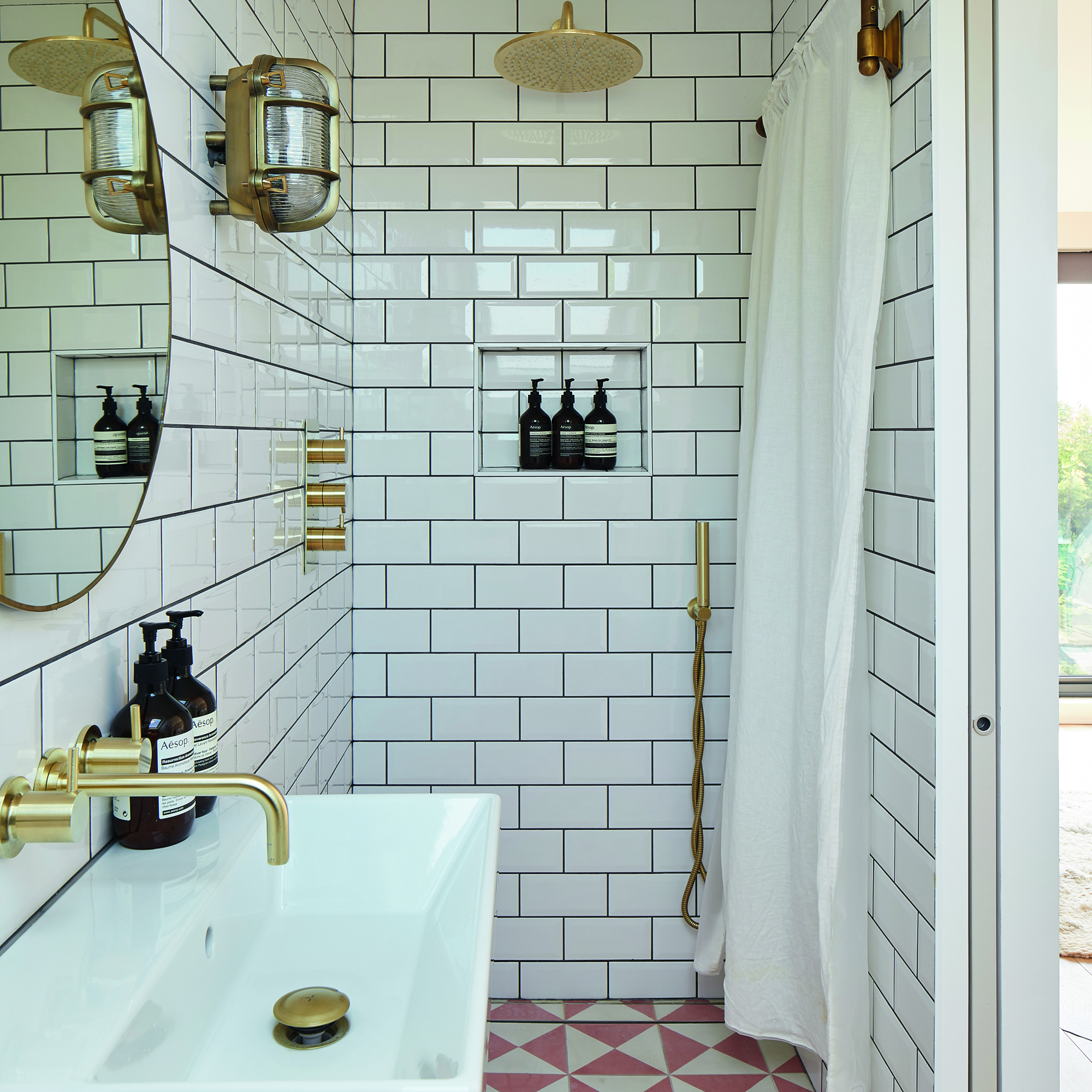
If you're faced with a small bathroom then a wet room is the best way to utilise the available space to include more than just a toilet and basin. Shower screens can take up an unnecessary amount of room and make the space tricky to navigate, so tilling the entire space will give you more room to wash.
Go one step further by adding a pocket door so that accessing the space is as simple as possible. Keep the walls a neutral shade to make it airy and use the floor to feature a pop of colour.
3. Make room for relaxation
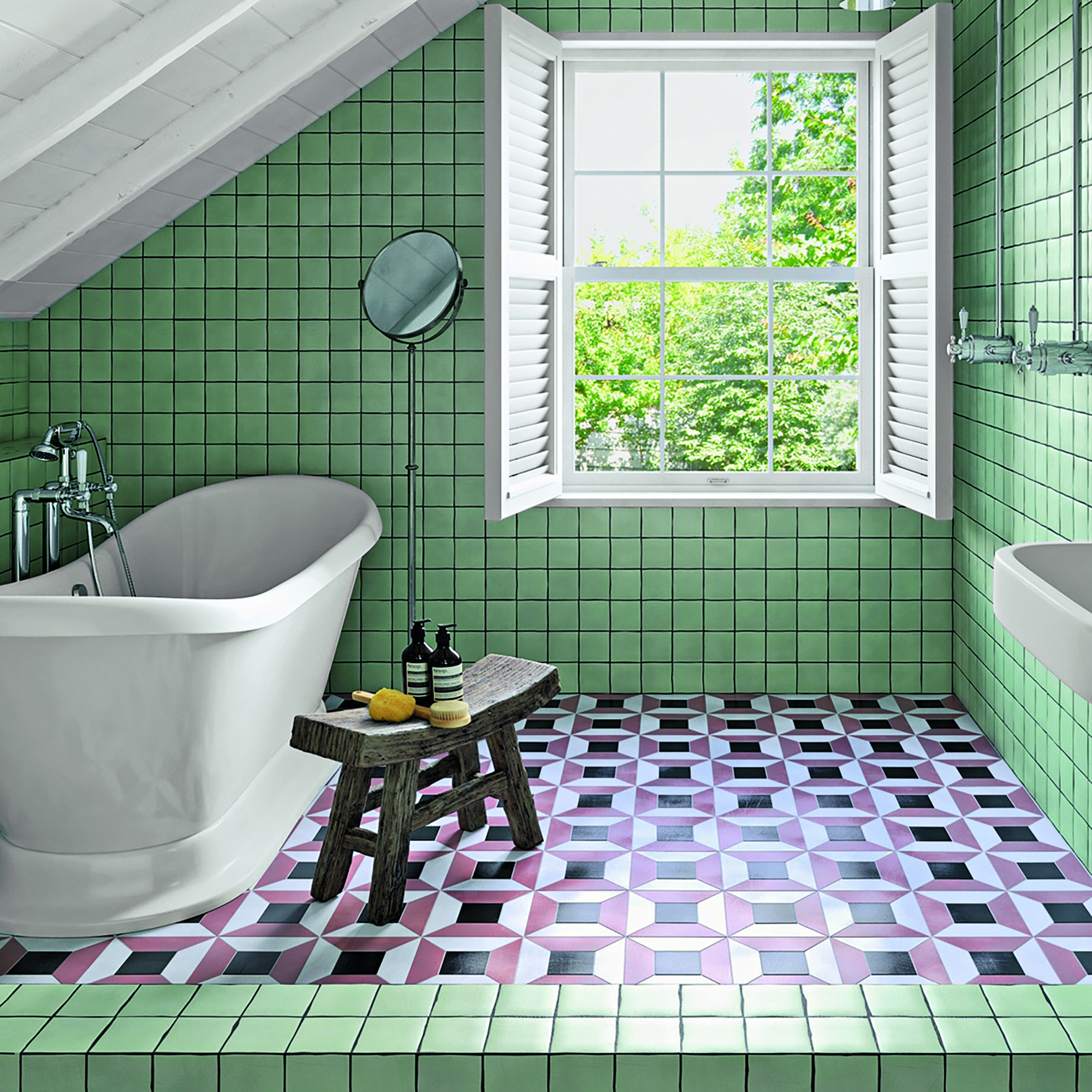
Creating a wet room doesn't necessarily mean having to forgo a bath. If you're particularly fond of laying back and relaxing then a bath will be an essential part of planning a bathroom.
Tiling around an area with a bath and shower will form a zone where you don't have to worry about splashes and dampness, and not to mention it creates a statement.
4. Create a partition
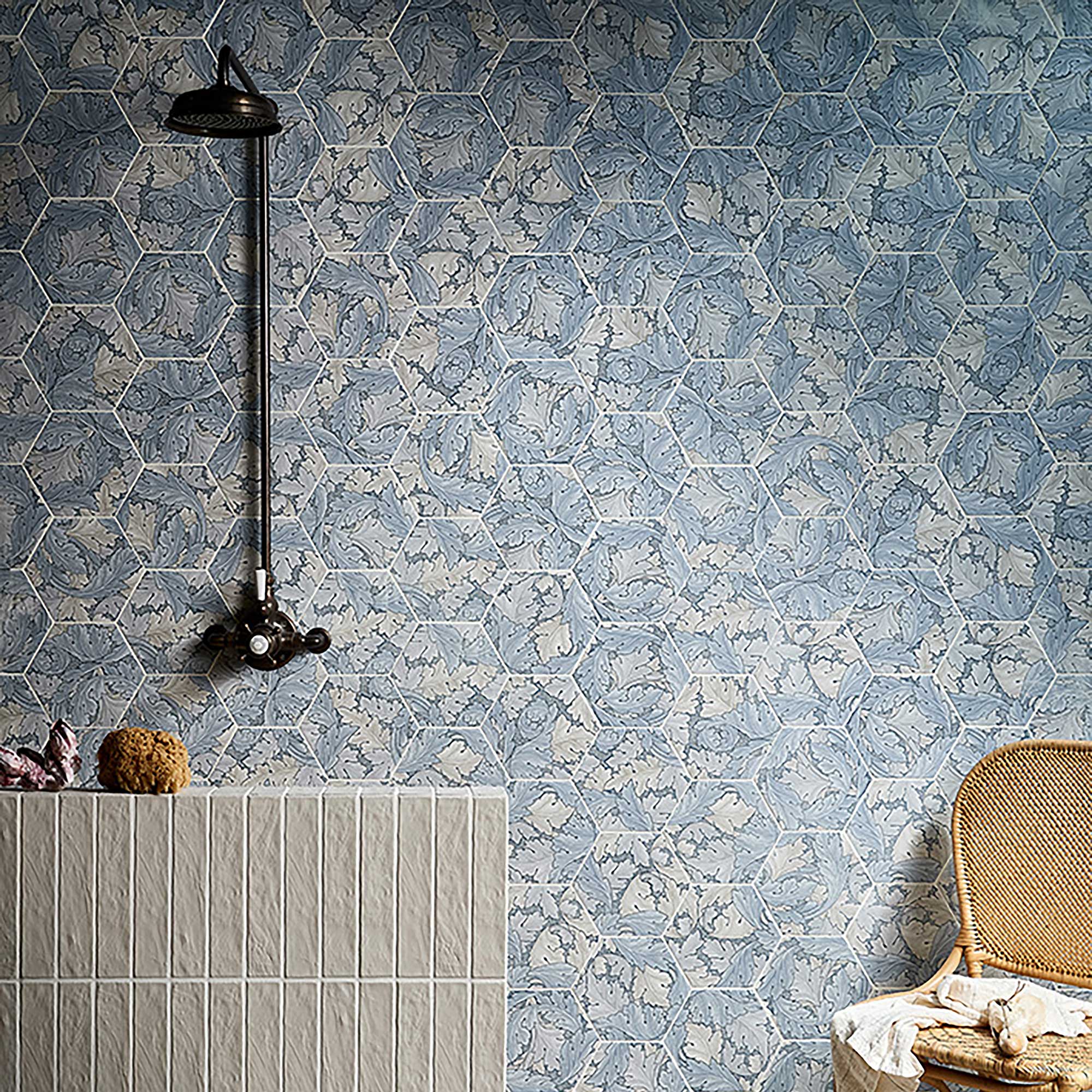
'A wet room without a shower panel increases the likelihood of water spraying onto surrounding sanitaryware,' notes Natalie Bird, brand marketing manager at bathroom company Roca.
While the majority of wet room ideas have the shower on one of the walls in the room, you can instead opt to build it into a partition wall. This will neatly create a divide from the rest of the space and prevent the other elements of the room from getting damp.
5. Work with the eaves
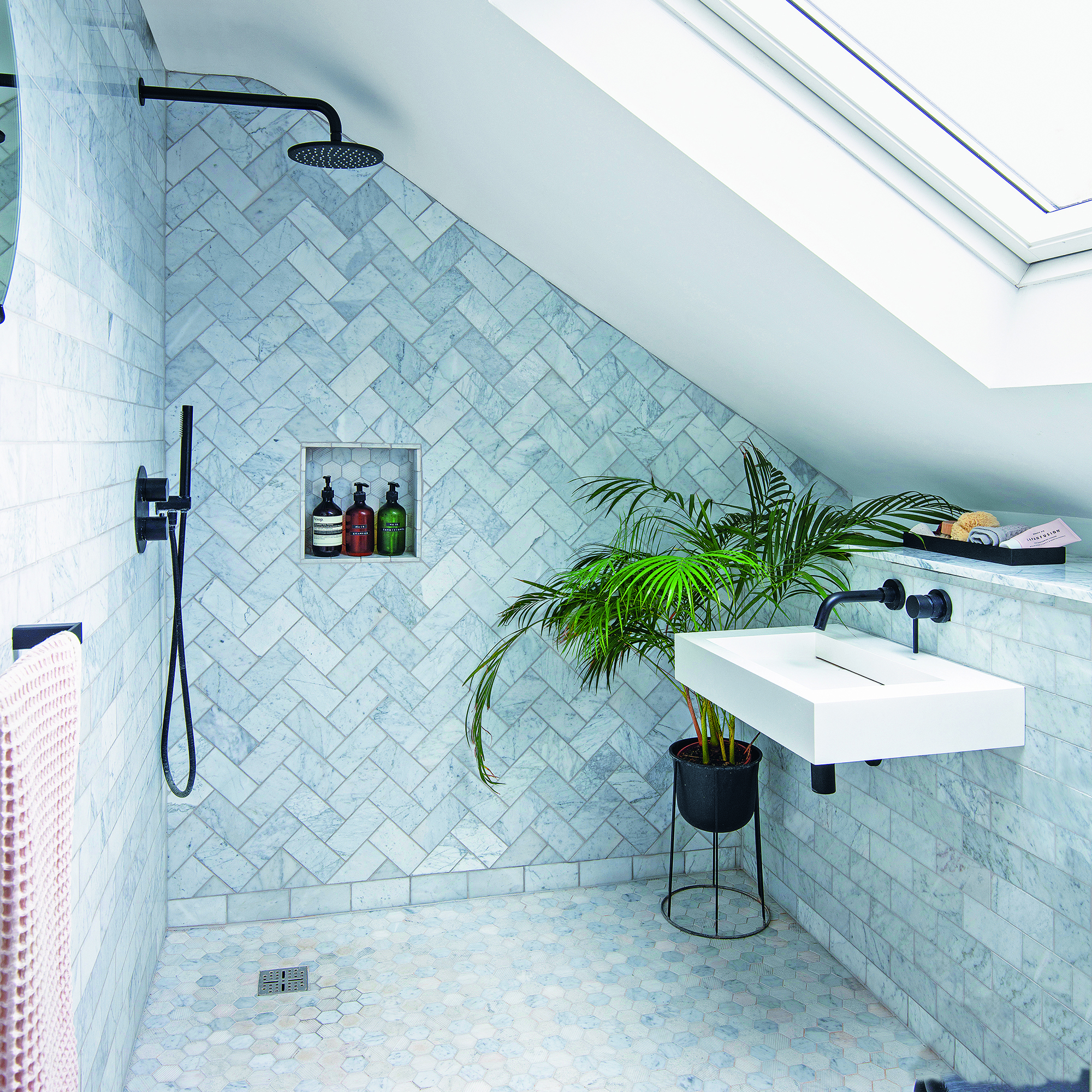
'Wet rooms are particularly effective in small or difficult scenarios, like rooms with sloped ceiling or awkward layouts, as you can maximise the showering area without the restrictions of standard shower tray sizes,' points out Nicholas Cunild, managing director at bathroom brand Matki .
This is one of the reasons why wet room ideas are a great choice in attic renovations or small bathrooms with eaves overhead.
6. Look to the light
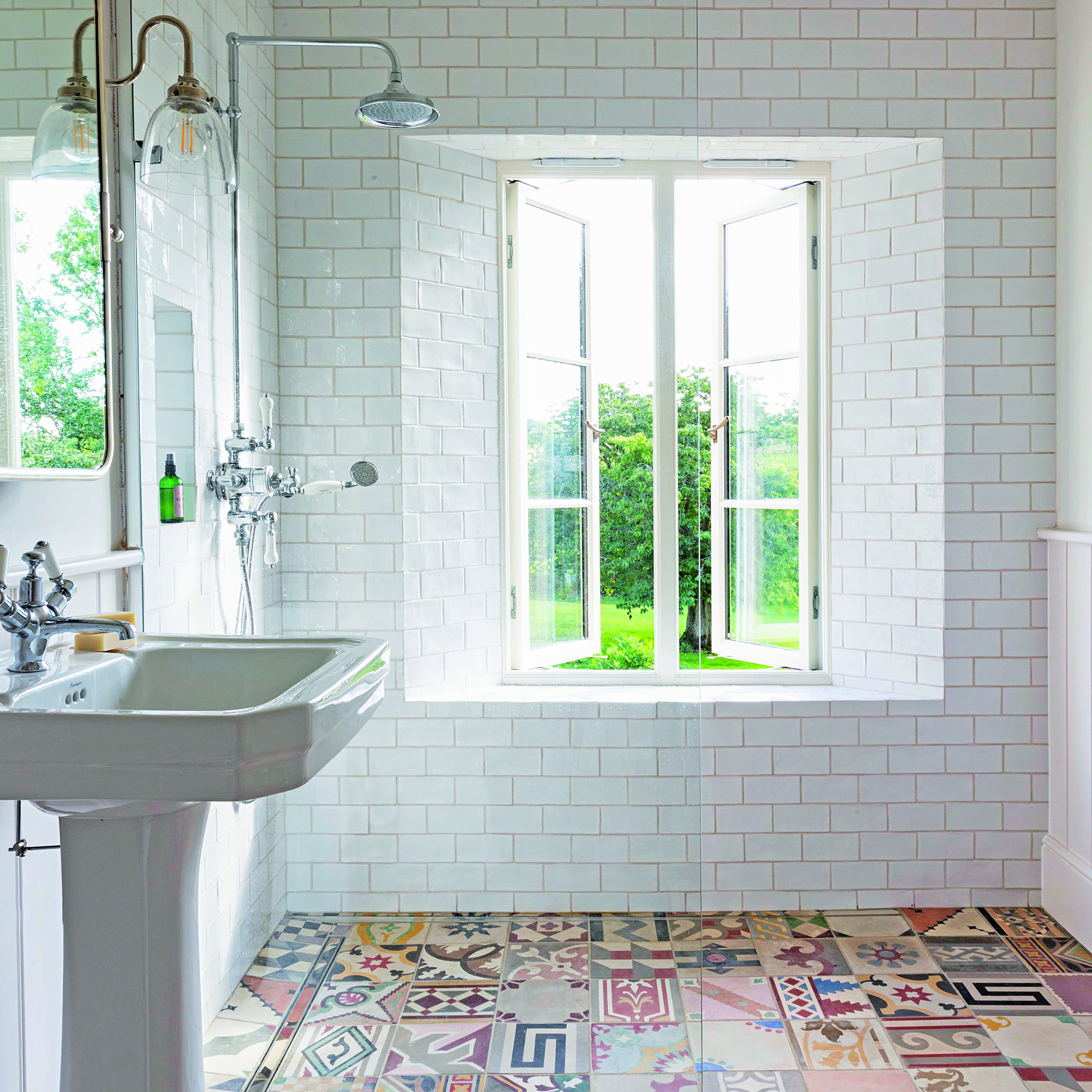
Focusing on bathroom lighting ideas is essential to ensuring you can use your space at all times of the day. While including a variety of artificial lights will help to add ambience, maximising natural light will help to make a wet room feel expansive and airy.
Positioning a shower next to a window will help the airflow so that the room dries out quickly and doesn't feel damp.
7. Choose a folding shower screen
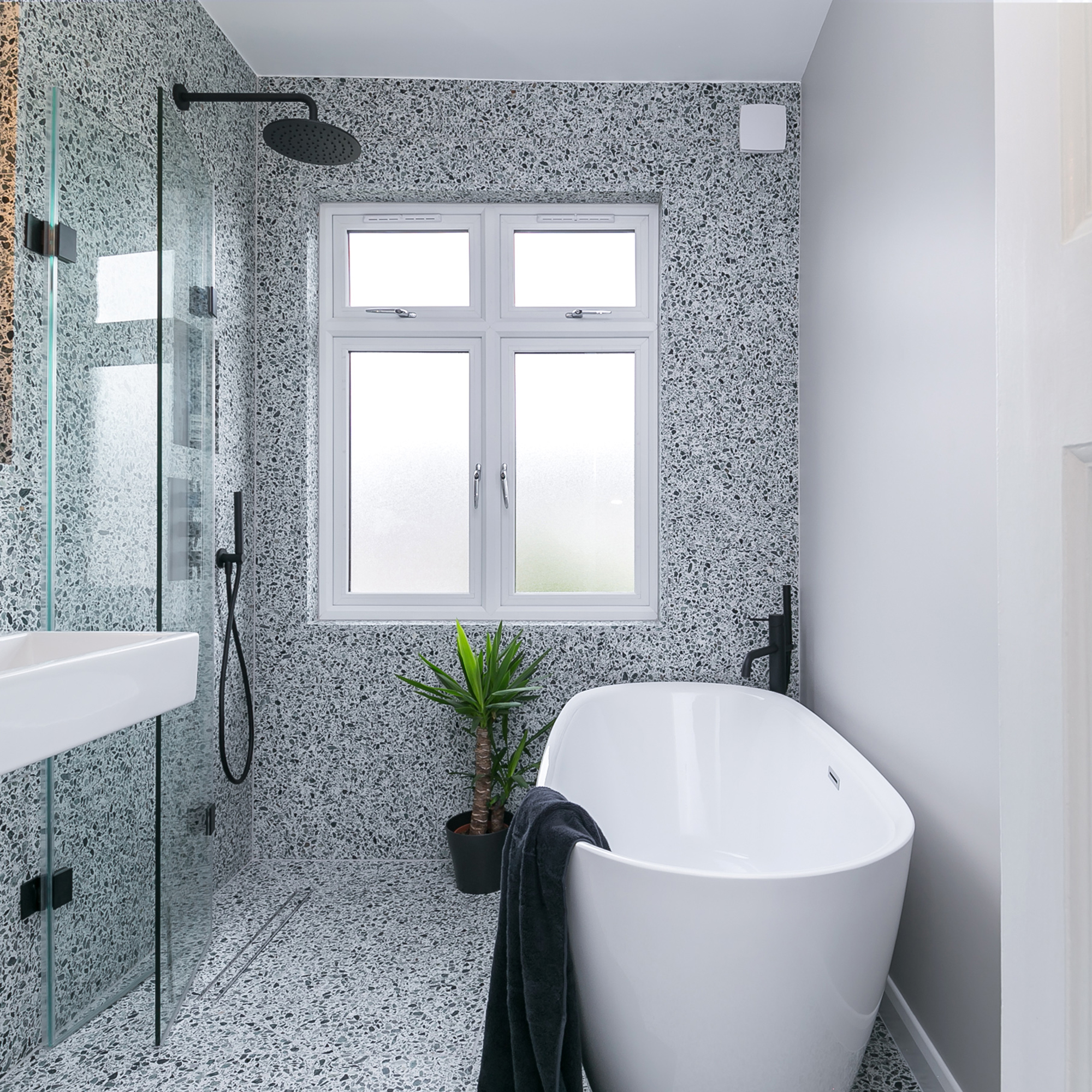
'When it comes to showers, a separate shower can often be considered a luxury if space is tight,' notes Barrie Cutchie, design director at bathroom company BC Designs. 'However, there are a couple of clever ways around it including wet rooms and folding shower screens that take up much less room than a typical shower.'
'Wet rooms tend to not need enclosures or bulky shower trays and can blend into the aesthetics of the rest of the room. We’re seeing a growing trend for folding shower screens integrated into bathroom planning. These can easily be folded back when the shower isn’t use, helping to create a sense of space as well as the ability to easily use other products during family bath time such as a bath.'
8. Use consistent floor tiles throughout
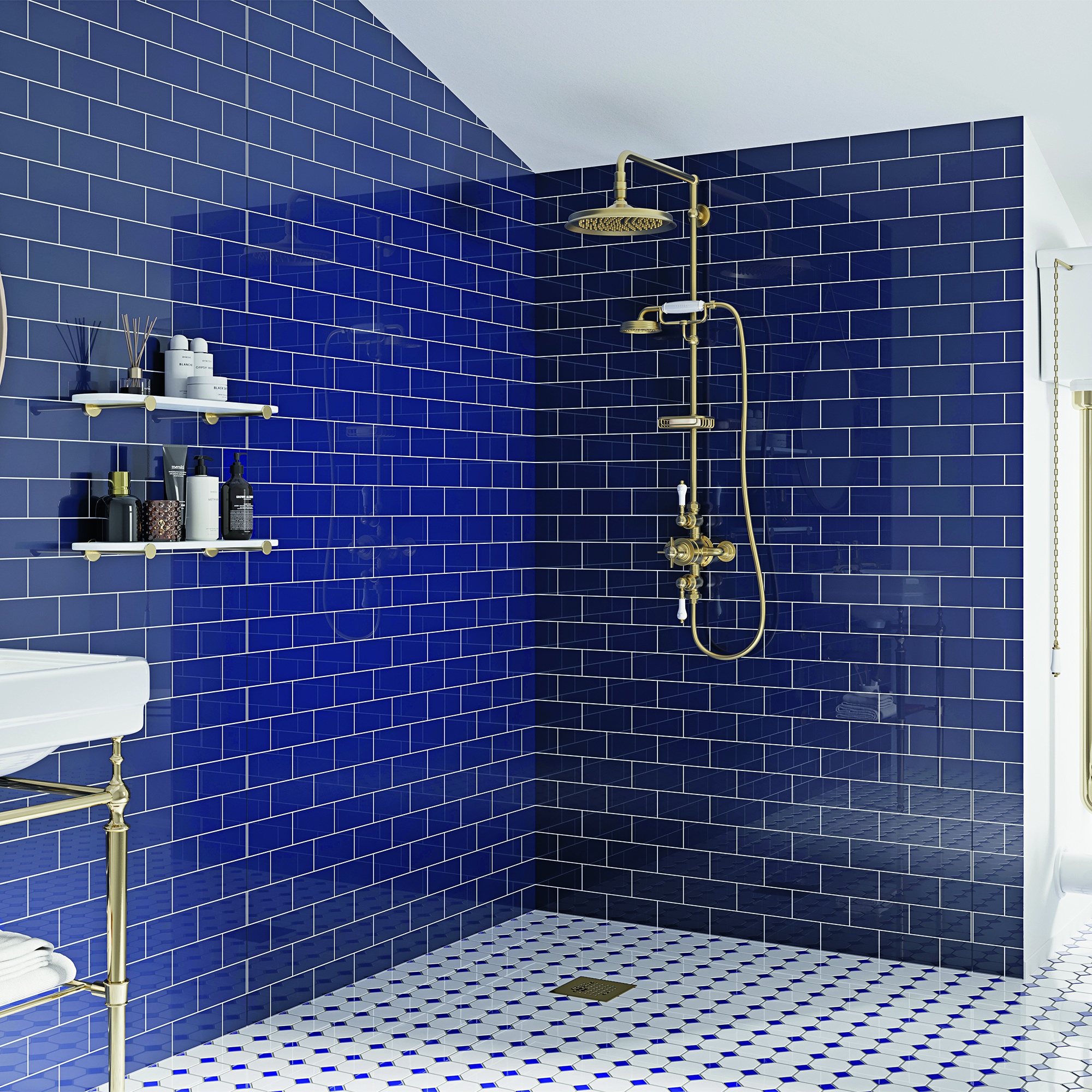
If you want to make your wet room ideas look larger than they are then using the same bathroom tiles on the floor of the shower and throughout the rest of the space will trick the eye into thinking the room is bigger than it is.
Remember that whatever design you go for, waterproofing is key. 'Tanking is the process of waterproofing the entire wet room, including the walls and floors,' explains Natalie from Roca.
'This is important because water can easily seep through tiles and grout, leading to dampness and even structural damage. Ultimately, the key to a successful tanking is good workmanship. As long as the workmanship is of good quality, there should be no problem.'
9. Take the tiles from the floor to the walls
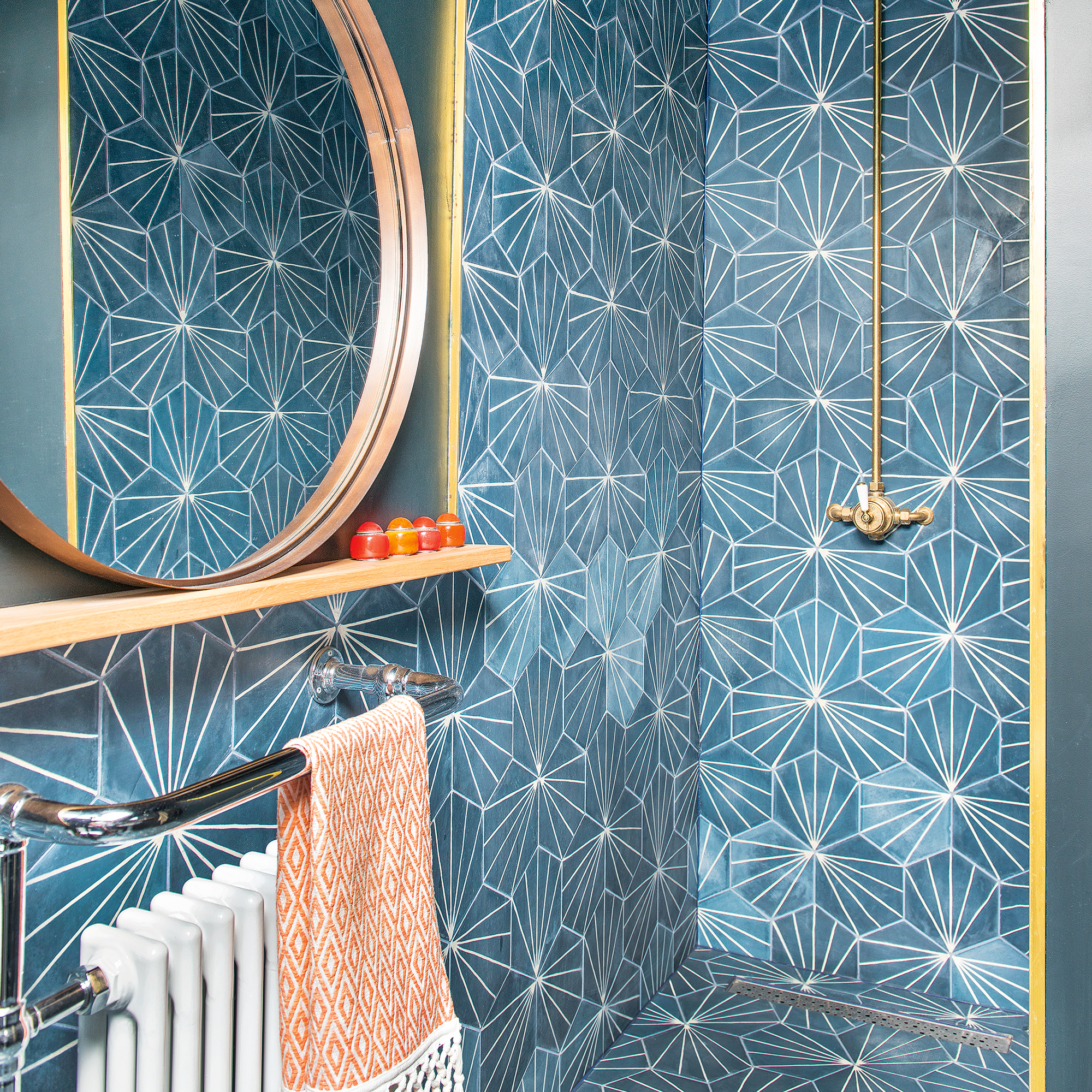
Another option for wet room ideas in small spaces is to lean in and go for all-out colour and pattern. Bring the tiles up from the floor onto the walls so it disguises where each stops.
Bijou bathrooms are a great place to experiment with design as it won't cost as much as fitting out a larger space.
10. Zone the space
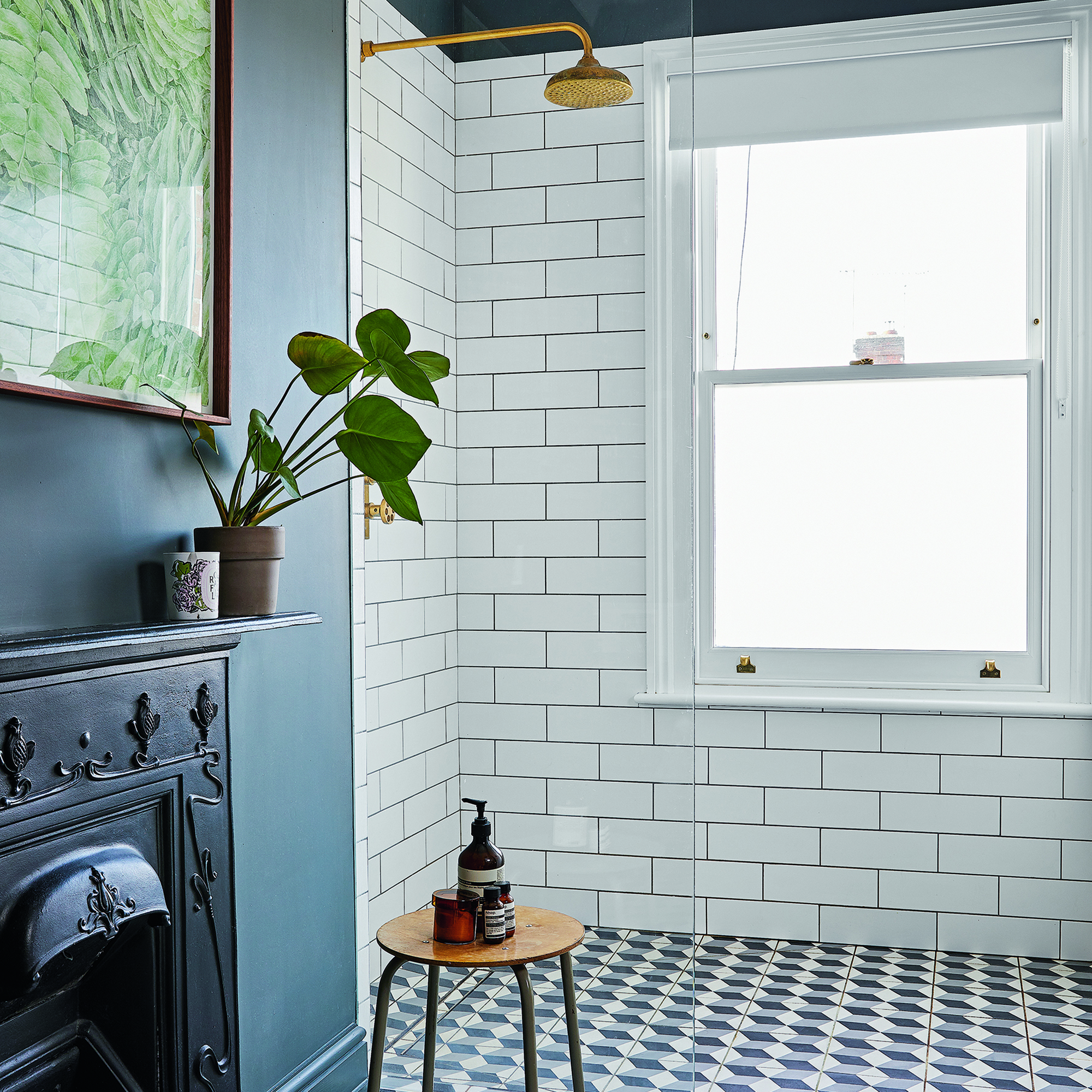
As wet room ideas are typically open, airy spaces you might get a bit tired of the same colour or material used throughout. One way of playing with this is by using different tiles or paint in the different areas of the room to visually zone the space.
'Due to the minimalist nature of its design, a wet room can feature different materials such as wood, stone and concrete, allowing your creativity to run wild!,' notes Ruth Foster, interior designer for Victoria Plum. 'They can look incredibly stylish and will add a ‘wow’ factor to your bathroom and will certainly add value when you come to sell.'
If you prefer to keep texture to a minimum, contrast shower tiles with wall paint in an opposing colour. This will also he;p to tie the bathroom into the rest of the home.
FAQs
What are the advantages of a wet room?
'The advantage of installing wet room ideas is the power to choose the shape and size of your shower area, meaning your shower doesn’t necessarily have to be tucked into the corner of the room,' notes Ruth from Victoria Plum.
'Also, with no doors, unsightly shower door seals or shower trays to climb into, access is easy for young and old alike. A wet room can be installed anywhere in the home and either on the ground or upper floors, providing the supporting floor is of concrete or timber construction and in good condition.'
How do you waterproof a wet room?
'The traditional method for waterproofing wet room ideas is to tank the walls, ceilings, and floors, before tiling, grouting, and sealing,' says Lidia from Multipanel.
'Tanking proofs the surfaces that will be laid with tile or paint, which can be done with either a physical membrane, or more commonly with a liquid mix that is spread onto walls.'
'Once the tanking has dried, which can take any time from 24 hours to one week, tiling is then laid with grout and sealant. Unsurprisingly, this method is time- consuming and requires a lot of manual labour.'
How much does it cost to put in a wet room?
Wet rooms often require a lot of tiles and waterproofing methods, so it's unlikely to be a fast and budget option.
'You should remember that wet rooms aren't a cheap budget bathroom idea or a quick fix,' says Lee Reed, head of marketing, Easy Bathrooms.
'Unless you’re an experienced DIY-er, we’d say that installing a wet room is a job best left to the professionals, and the best plumbers and tilers will — and should — charge a reasonable fee for their work. You can expect to pay at least £5,000 for this.'
Which style takes your fancy? Start saving your favourite tiles for inspiration...

Thea Babington-Stitt is the Assistant Editor for Ideal Home. Thea has been working across some of the UK’s leading interiors titles for nearly 10 years.
She started working on these magazines and websites after graduating from City University London with a Masters in Magazine Journalism. Before moving to Ideal Home, Thea was News and Features Editor at Homes & Gardens, LivingEtc and Country Homes & Interiors.
- Holly CockburnContent Editor